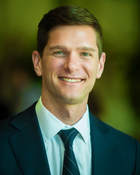 Brad Rathgeber Brad Rathgeber Last school year, students in our schools observed and experienced deep divisions as a result of a difficult election season and aftermath, and increased global uncertainty. Angry rhetoric and exchanges have been part of our students’ world, leading many educators to question (and re-question and re-question) what they can do to best support our students as they process complexities and help students engage constructively and effectively as global citizens? We’ve been asking ourselves this question over and over at One Schoolhouse, especially in light of the unique role that we play in the independent school community and for independent schools. As many of you know and as I have documented in my blog over the last year, we have created a personalized pedagogical framework for courses at the school. This framework allows us to build competencies at the school level and at the class level, and allows students to create individualized goals. School-wide competencies at One Schoolhouse become so embedded into the framework of our courses that they are really the promise that we make to schools that sign up students for our courses. Beginning this fall, all One Schoolhouse courses will embed a new school-wide competency: Engaging Constructively in a Diverse and Changing World Students develop an inclusive world view when they encounter people and ideas that are different from their own, practice empathy, work collaboratively, defend their position with facts respectfully, and demonstrate mastery through real-world application. By engaging in activities that make learning relevant, students practice intellectual curiosity as they assimilate facts to solve an interdisciplinary problem, analyze a new situation, create meaning from a range of sources, or build a tool. In addition, we are offering three courses that are built to provide additional course specific competencies for students to be civic leaders, critical thinkers, problem solvers, and culturally competent citizens. In Civics, Culture, and Intersectionality, students explore citizenship and justice through the lenses of civics, culture, race, class, religion, and art. As students define what they believe, they uncover their own biases, practice empathy, and learn to voice their own perspectives without silencing those of others. Gender and Sexual Identity in America focuses on the changing nature of identities over time, including efforts to expand and restrict identities in cultural, religious, and political form. Students develop cultural competency around gender and sexual identity and explore their own interests on a wide range of related topics. And, in AP® Comparative Government and Politics, students gain enhanced comprehension of how our world evolves and functions and thorough understanding of some of the major political systems across the world. Students analyze how these different states function, both as independent states and as part of the global community. By embedding the school-wide competency and creating opportunities for increased competency in constructive engagement for students, we hope to inspire students to create a more compassionate future and give them the skills, tools, and mindsets to get there.
0 Comments
Leave a Reply. |
Don't miss our weekly blog posts by joining our newsletter mailing list below:AuthorsBrad Rathgeber (he/him/his) Archives
July 2024
Categories |

 RSS Feed
RSS Feed